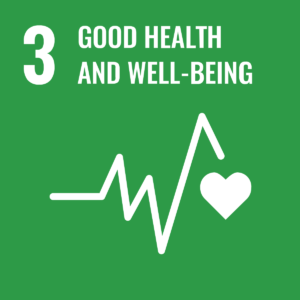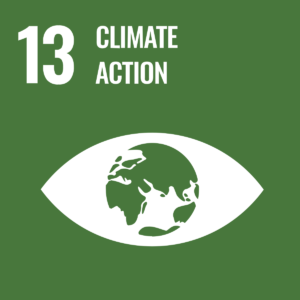
FUWA
FUWA uses Eco Enzyme technology to convert giant pineapple peels into safe and organic cleaning... View more
BUSINESS MODEL INNOVATION
BUSINESS MODEL INNOVATION | FUWA BIOTECH
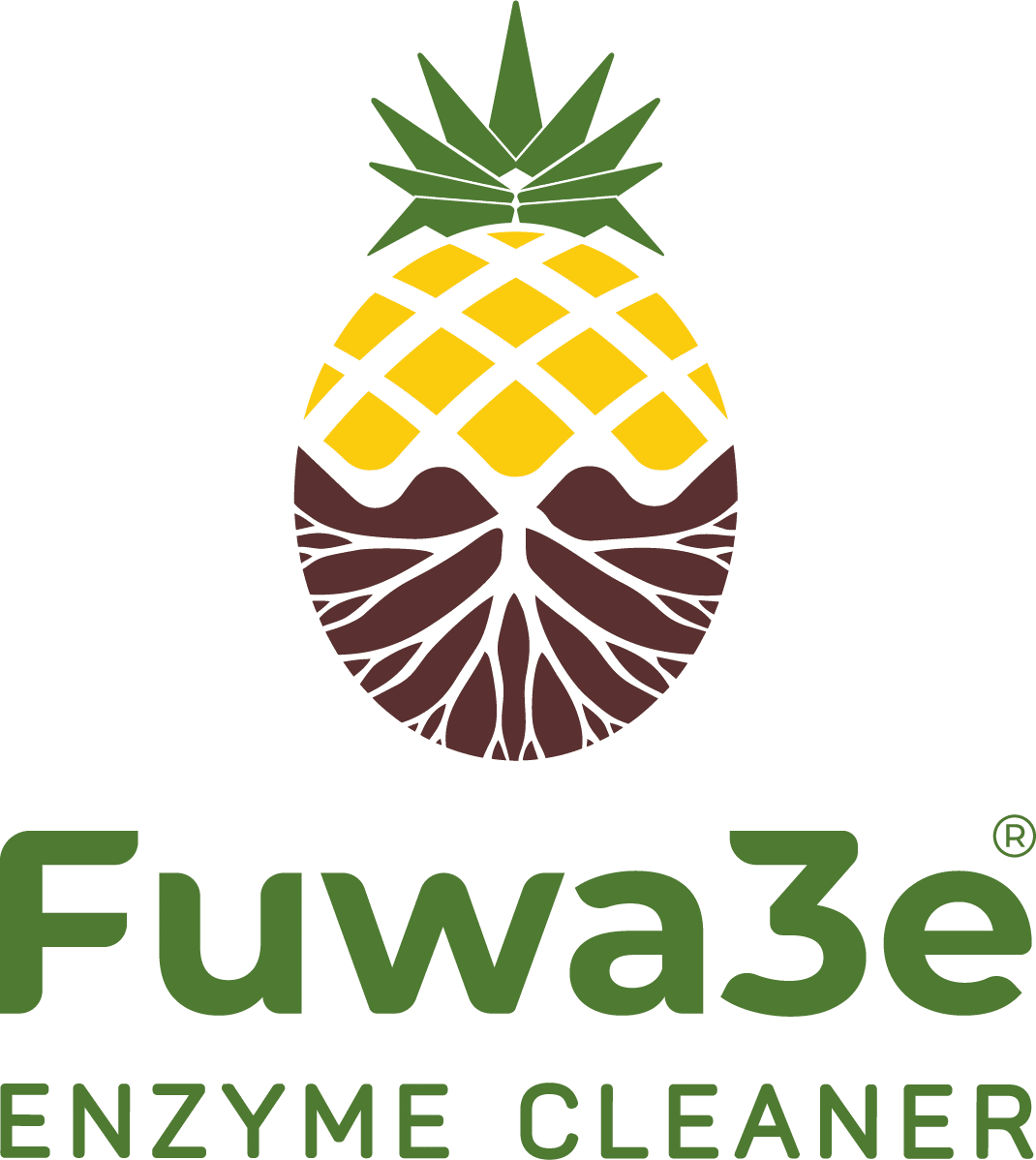
PITCHING VIDEO
A. SOCIAL BUSINESS DESIGN
A1. Social Mantra One-liner
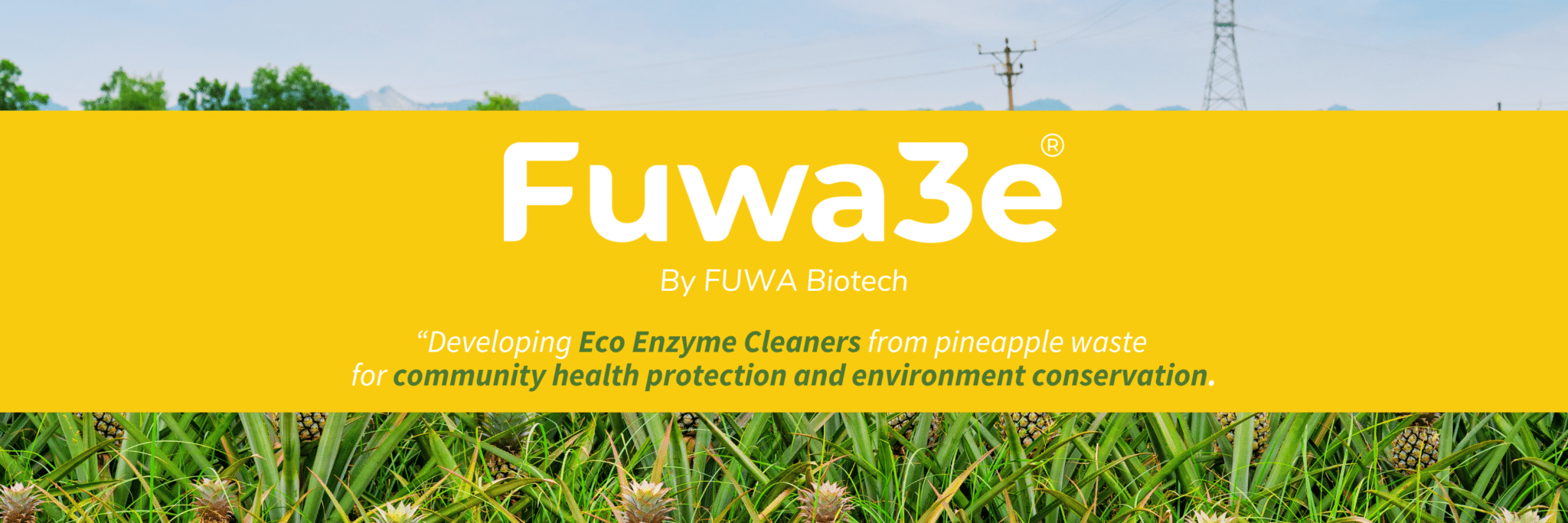
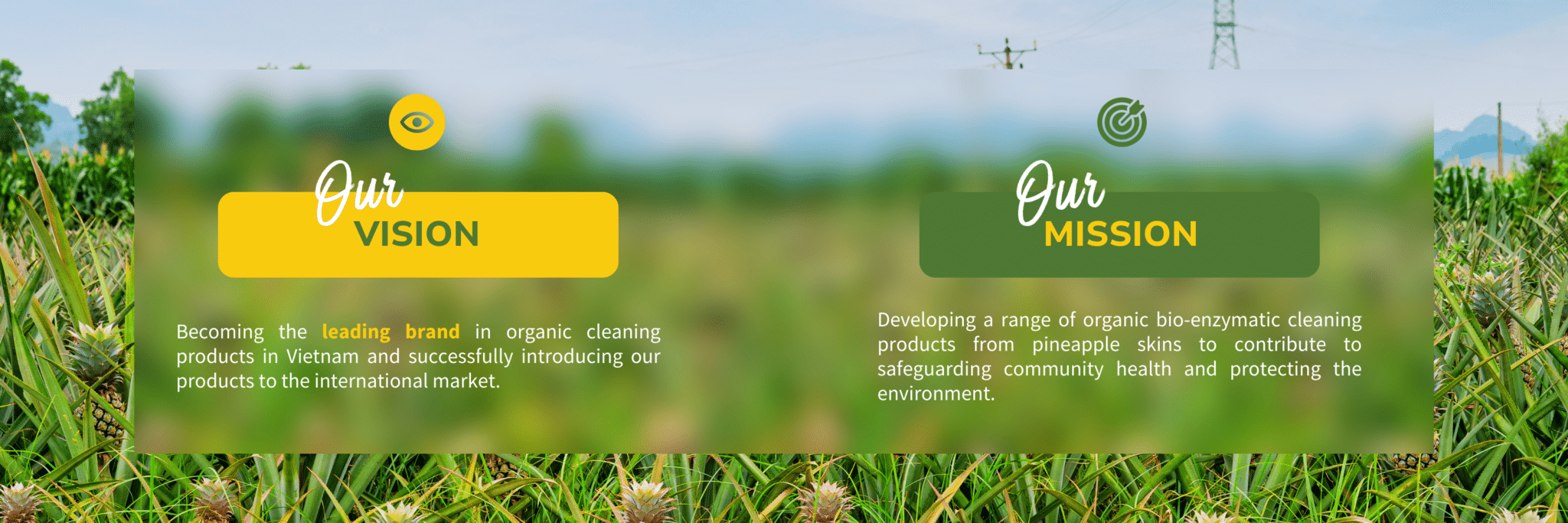
A2. Product/Service Presentation
Cleaning products made by FUWA are diversified to optimize benefits for our customers, all of which commit to 0% Colorants, 0% Artificial Fragrances and 0% Harmful Chemicals. We offer 18 cleaning products divided into 4 categories of Eco Enzyme cleaning products, with prices ranging from 0.64$ to 1.28$ per 100ml product.
| Category | Benefits:
Social Impacts:
|
| Home care: 11 products including Dishwashing liquid, Laundry Detergent, Hand Washing liquid… | |
| Baby care: 2 products including Toy Cleaner Spray, Baby Bottle Cleaning sets | |
| Car care: 3 products including Interior Cleaner, Car Spray and Essential Oil | |
| Pet care: 2 products including Pet Bath Gel & Pet Ordor Eliminator |
Our products:

Feedback from customers:
“They are chemical-free, biodegradable and gentle on the hands and the environment. The wastewater discharged after washing dishes is also unharmful to the environment.” – Pham Giang, 35 years old, a mother of two children in Hanoi.
“I feel reassured when my children use such natural products.” – Nguyen Thu Ha, a primary teacher in Hanoi.
Amazon Customers:
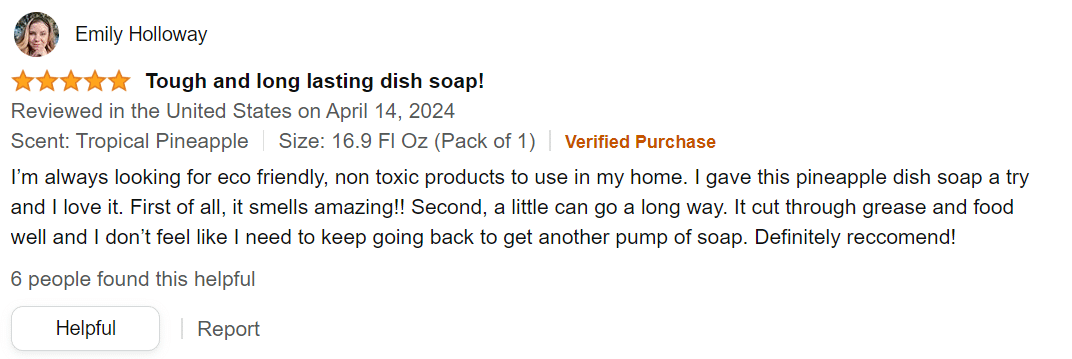
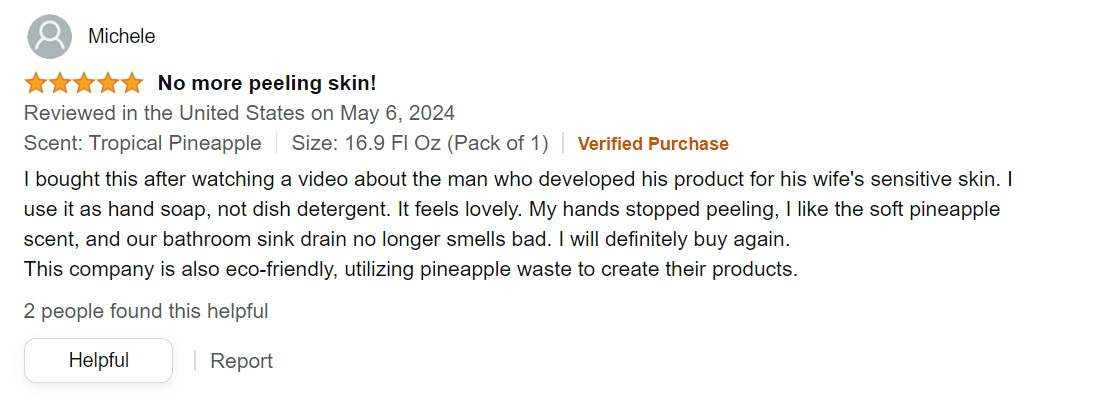

B. BUSINESS MODEL
B1. Business Model Review
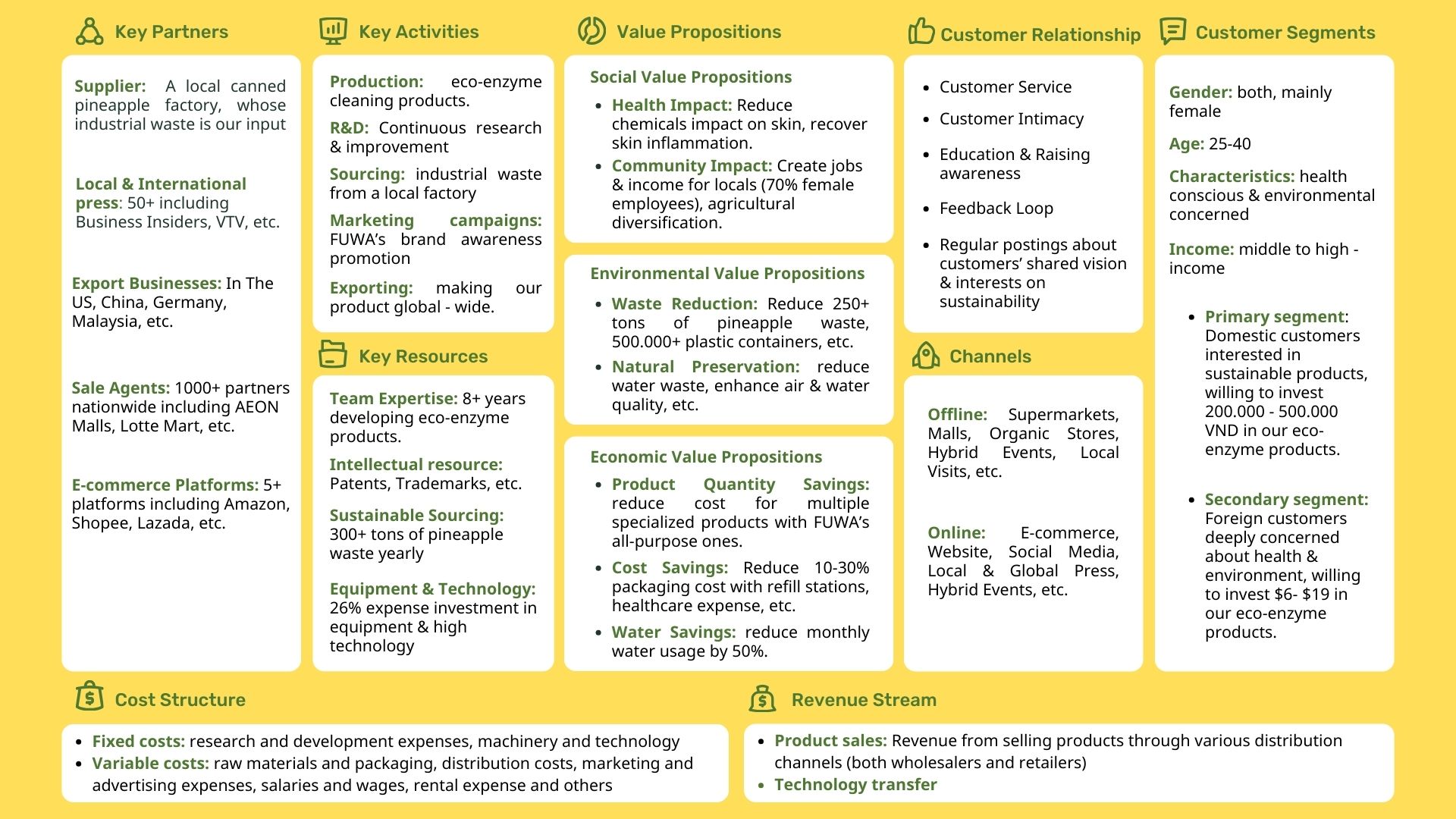
B2. ECONOMIC VALUE FOR CUSTOMER
To identify customer segmentation, we use STP model:
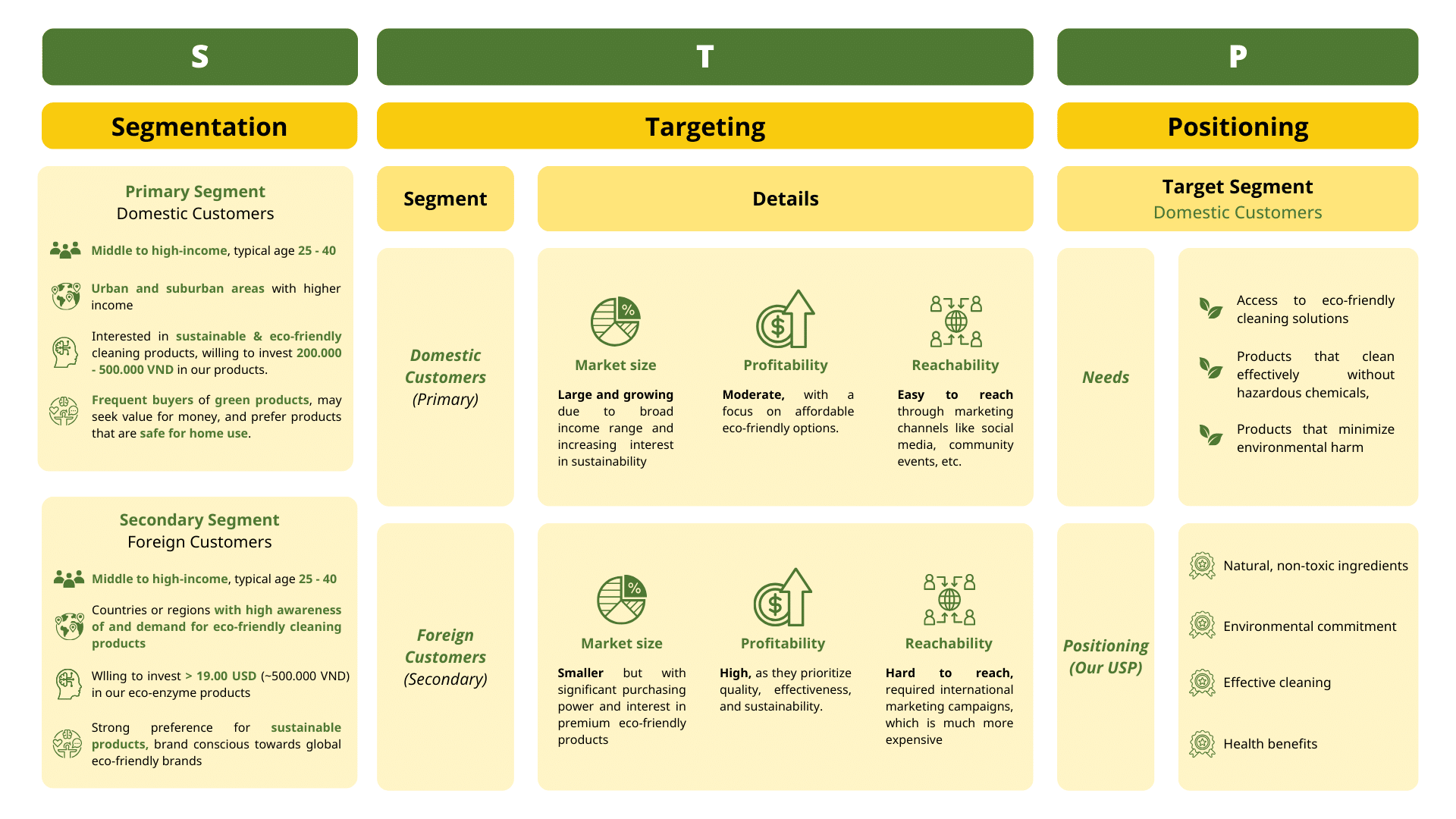
Customer Segment:
FUWA’s customers are Vietnamese and global households, especially females with age groups ranging from 25-40. They need effective cleaning products that are not only affordable but also safe for their family’s health. They’re also interested in or focus on sustainable lifestyles.
Customer Persona:
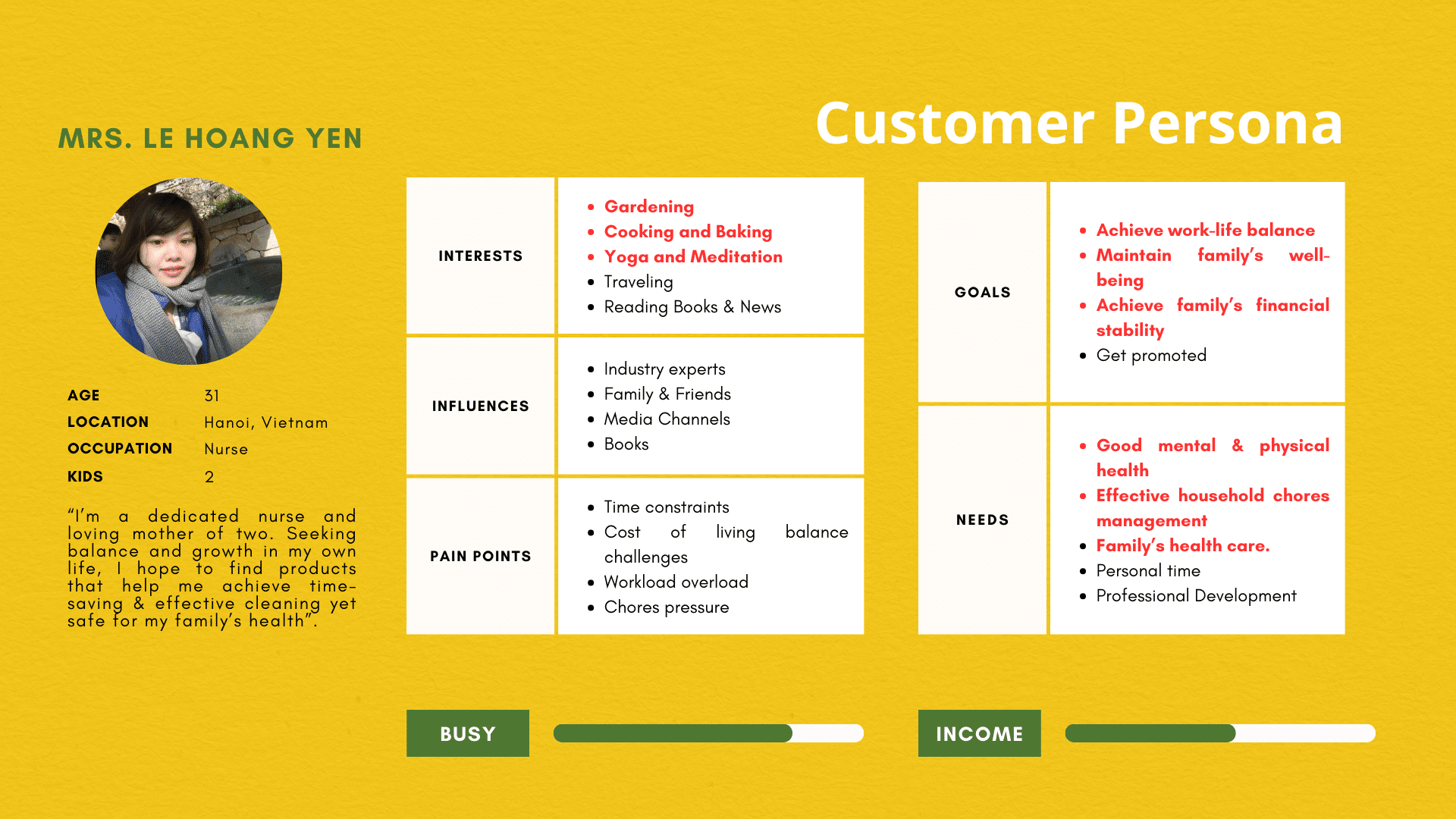

Economic Value Proposition
- FUWA offers effective cleaning products that are cost & time – saving with water usage reduction of 50% compared with normal one, saving ~ 300.000 VND/ year on water bill.
- As FUWA is safe for skin & unharmful for sewer systems, customers can save costs on purchasing cleaning gloves, cleaning tablets, etc.
- FUWA’s products are VOCs-free, which can not only ensure air quality but also create natural pleasant odours, helping customers save costs for air purifiers.
- FUWA offers multi-purpose cleaning products, reducing ~ 300.000 – 400.000 VND for multiple alternative specialized products each time.
- FUWA offers over 200 refill stations, allowing customers to not only save the environment but also packaging cost, reducing 10-30% cost compared to buying a whole new product.
- FUWA is safe for eczema skin, meaning that customers can reduce cost for healthcare services.
Channels
| Online | Offline | |
| Distribution | E-commerce platforms: Amazon, Tiktok shop, Shopee, Lazada, etc.
|
Organic physical stores: Bach Tin Shop, Dang An Di, etc.
Malls & Supermarkets: AEON Malls, Lotte Mart, etc |
| Marketing | Website – fuwa.com.vn.
Facebook‘: 42.000 likes & followers TIktok: 3.387 followers & 15.900 likes Instagram: 909 followers & 500+ likes |
Trading fairs: Demo Day – Vietnam Impact Challenge, SIB Signature, etc.
Campaigns & Events: “Turning household waste into detergent”, “Right Knowledge – Sufficient Retention”, etc. |
Customer relationship method:
- Feedback loops: continuous customer’s feedback collection, improving our products to meet their needs.
- Social events such as “Exchange Trash For Trees”, “CLEAN UP 2022”, “Green Building Vietnam”, “Earth Day 2023”…
- Regular posts on our social accounts that promote green living, health care tips…, creating a shared vision and common interests with our customers.
Competitive Landscape
| Indicator | Local Detergents | Imported Detergents | FUWA |
| Natural Ingredients | ⬜ Partially Natural | ⬜ Partially Natural | ☑️ 100% Natural Ingredients + Essential Oil |
| Eco Enzyme Technology | ⬜ No | ⬜ No | ☑️ Yes |
| 0% Harmful Chemicals | ⬜ No | ⬜ No | ☑️ Yes |
| Viscosity | ⬜ Viscous | ☑️ Non-viscous | ☑️ Non-viscous |
| Price | ☑️ Affordable | ⬜ Expensive | ☑️ Affordable |
| Environmental Impact | ⬜ High | ⬜ Moderate | ☑️ Minimal |
| Packaging | ⬜ Single-use Plastics | ⬜ Single-use Plastics | ☑️ Biodegradable Packaging + Refill Stations |
| Skin Safety | ⬜ May Cause Irritations | ☑️ Generally Safe | ☑️ Safe for Sensitive Skin, Heal inflammation |
| Local Sourcing | ☑️ Locally Sourced | ⬜ Imported | ☑️ Locally Sourced |
| Sustainability | ⬜ Limited Sustainability Initiatives | ⬜ Some Sustainability Initiatives | ☑️ Zero-Waste Factory |
| Product Range | ☑️ Diverse | ☑️ Diverse | ☑️ Diverse (Home, Baby, Car, Pet Care) |
| Effectiveness | ☑️ Effective | ☑️ Highly Effective | ☑️ Highly Effective |
| Consumer Health Benefits | ⬜ Contains Harsh Chemicals | ☑️ Generally Safe | ☑️ Nutrient-rich, Healing and Skin-friendly |
| Community Impact | ⬜ Limited | ⬜ Limited | ☑️ Supports Local Economy |
B3. TARGET SOCIAL IMPACTS
-
The most important group of beneficiaries of FUWA is households that use cleaning products on a daily basis.
Their profiles: They are families, particularly those with young children, elderly members, or individuals with skin sensitivities or allergies. Therefore, they seek clean and non-hazardous cleaners.
| What are their problems? | What is our social value proposition? |
| Health Risks: Exposure to chemical cleaning products can lead to skin irritations, allergies, and respiratory issues because they mostly contain chemical ingredients. Also, a study found 530 Volatile organic compounds (VOCs) from 30 cleaners tested, of which 193 VOCs are considered toxic. | Health Protection: FUWA’s natural cleaning products are 100% natural ingredients from Eco Enzyme, reducing skin eczema and providing a safer home environment. |
| Environmental Concerns: Conventional cleaning products contribute to water pollution and plastic waste. Large amounts of chemicals from cleaning bottles have been detected in our natural waterways and oceans that have high amounts of plastic pollution in them including harmful chemicals like polypropylene, PVC, and polystyrene (Cleanipedia). | Environmental Sustainability: FUWA’s refill stations help reduce 500.000 plastic bottles per year. Also, wastewater from Eco Enzyme can clean drains, limit the growth of mosquitoes and limit chemicals discharge into the environment. |
Channels to deliver: We can deliver our social value to customers through a distribution network of over 1000 sale agents, online marketplace as well as over 200 refill stations nationwide.
Channels to communicate: We can communicate with consumers and convey our vision, mission through social media channels such as our Facebook with 23k followers and Tiktok with 15.9k likes. We also join in eco-friendly fairs, health seminars, and local community events to raise public awareness about green lifestyle.
-
The second beneficiaries of our products are the local community in Thanh Hoa Province, Vietnam.
Their profiles: We target pineapple farmers, factory workers, and small business owners in rural areas of Thanh Hoa Province, which is one of the largest pineapple-growing regions with 3700 hectares in Vietnam.
| What are their problems? | What is our social value proposition? |
| Economic Instability: Many residents rely on seasonal agricultural work, which can lead to financial instability. According to the General Statistics Office of Vietnam, Thanh Hoa’s poverty rate was 6.8% in 2022. | Economic Empowerment: By purchasing pineapple waste from local factories, FUWA provides a steady income stream for local farmers and employees. 70% of employees are women and ethnic minorities. There are also 100+ female agents nationwide. |
| Waste Discharge: Pineapples have skins and a stem that can theoretically be composted. However, only about 4% of compostable materials are actually composted, meaning that most simply go to landfills. Improper disposal of thousands of tons of pineapple peels annually affect both health and local ecosystems. | Environmental Impact: FUWA’s circular economy model ensures no waste in our production process. |
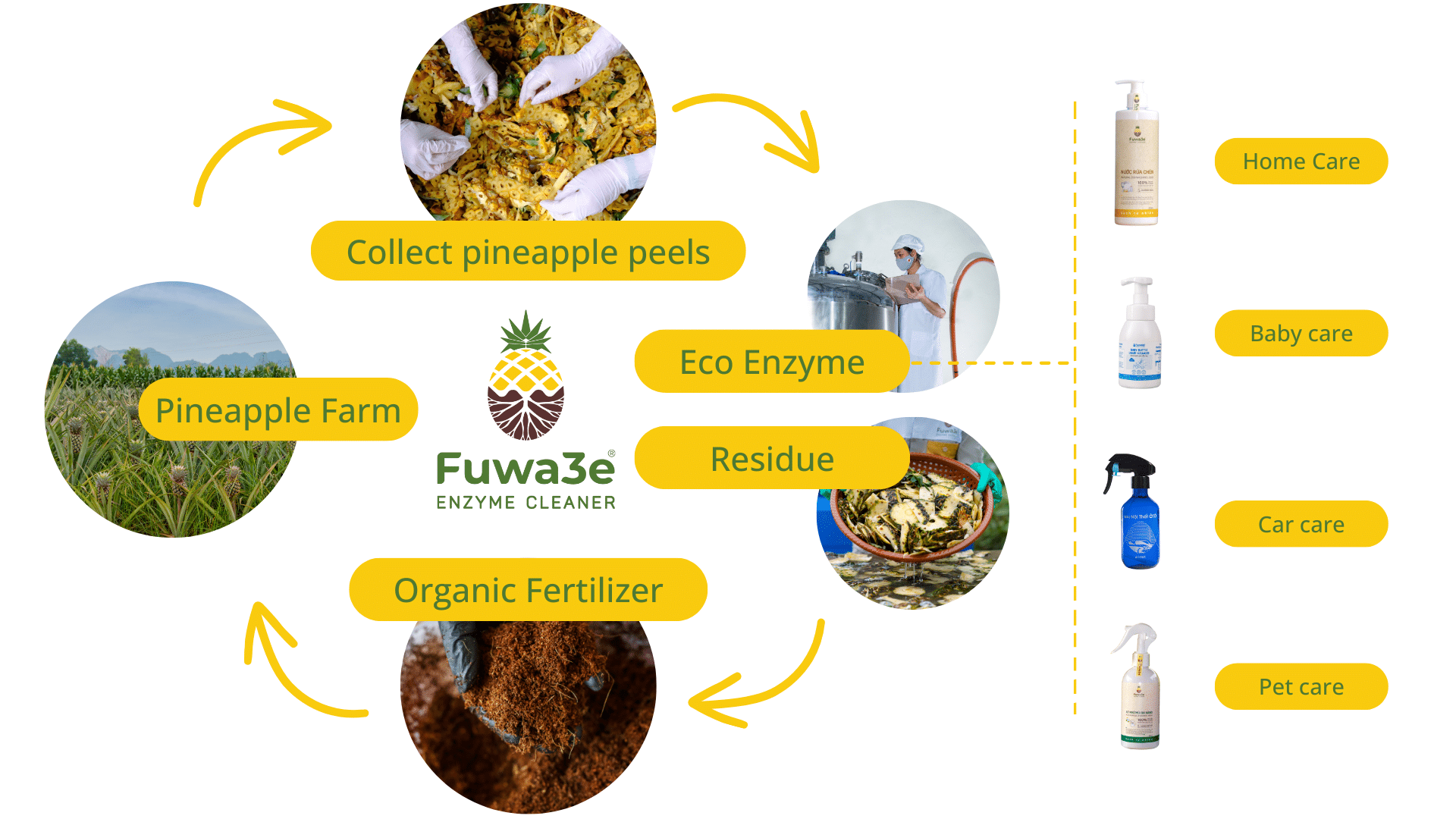
Figure: FUWA’s circular production process
Channels to deliver: We collaborate with local farmers, cooperatives, and processing factories to source 300 tons pineapple peels. Also, we provide thousands of jobs in FUWA’s production facilities and refill stations.
Channels to communicate: Via Commune People’s Committee. We communicate with the representatives of People’s Committees in Thanh Hoa to better understand their local residents’ situation. Also, we contact local newspapers, radio stations, and community boards to disseminate information about FUWA’s initiatives and job opportunities.
-
Size of potential beneficiaries:
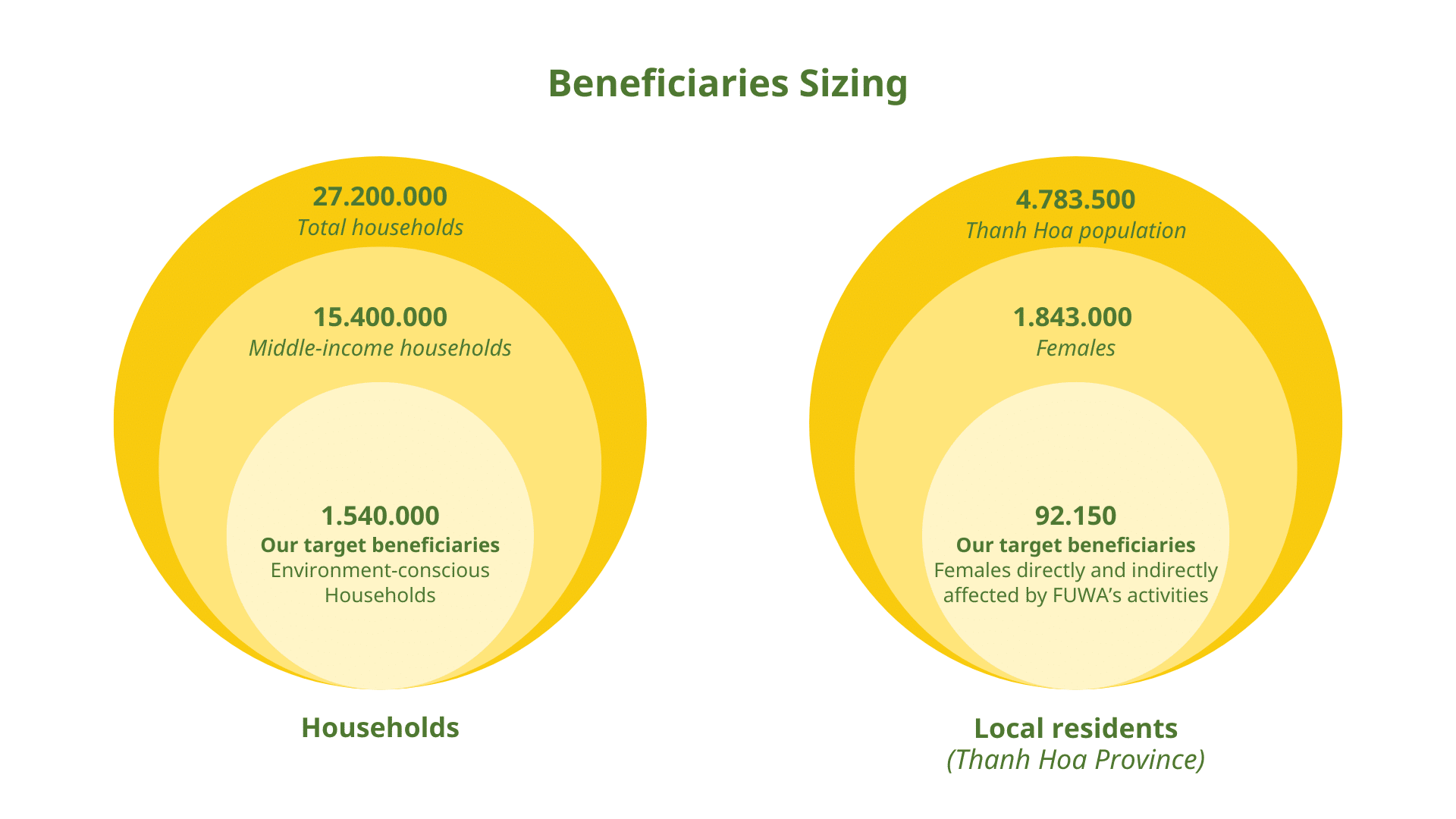
As of 2021, there are approximately 27.2 million households in Vietnam (General Statistics Office of Vietnam). FUWA targets middle to high-income, environment and health-conscious households, which is 56.6% households (around 15.4 million), whose income is above 15 million dong (644$) per month. We want to reach a reasonable estimate of around 10% of this segment, which are approximately 1.54 million households.
For the local residents, the Thanh Hoa’s population is 4.783.500 people, ranked third in Vietnam, including 1.843.000 females (2020). Considering the agricultural and factory worker demographics, we target around 5% of the female population who are directly or indirectly affected by FUWA’s activities.
B4. Feasibility
Key Activities:
- To create profits, we conducted the following key activities:
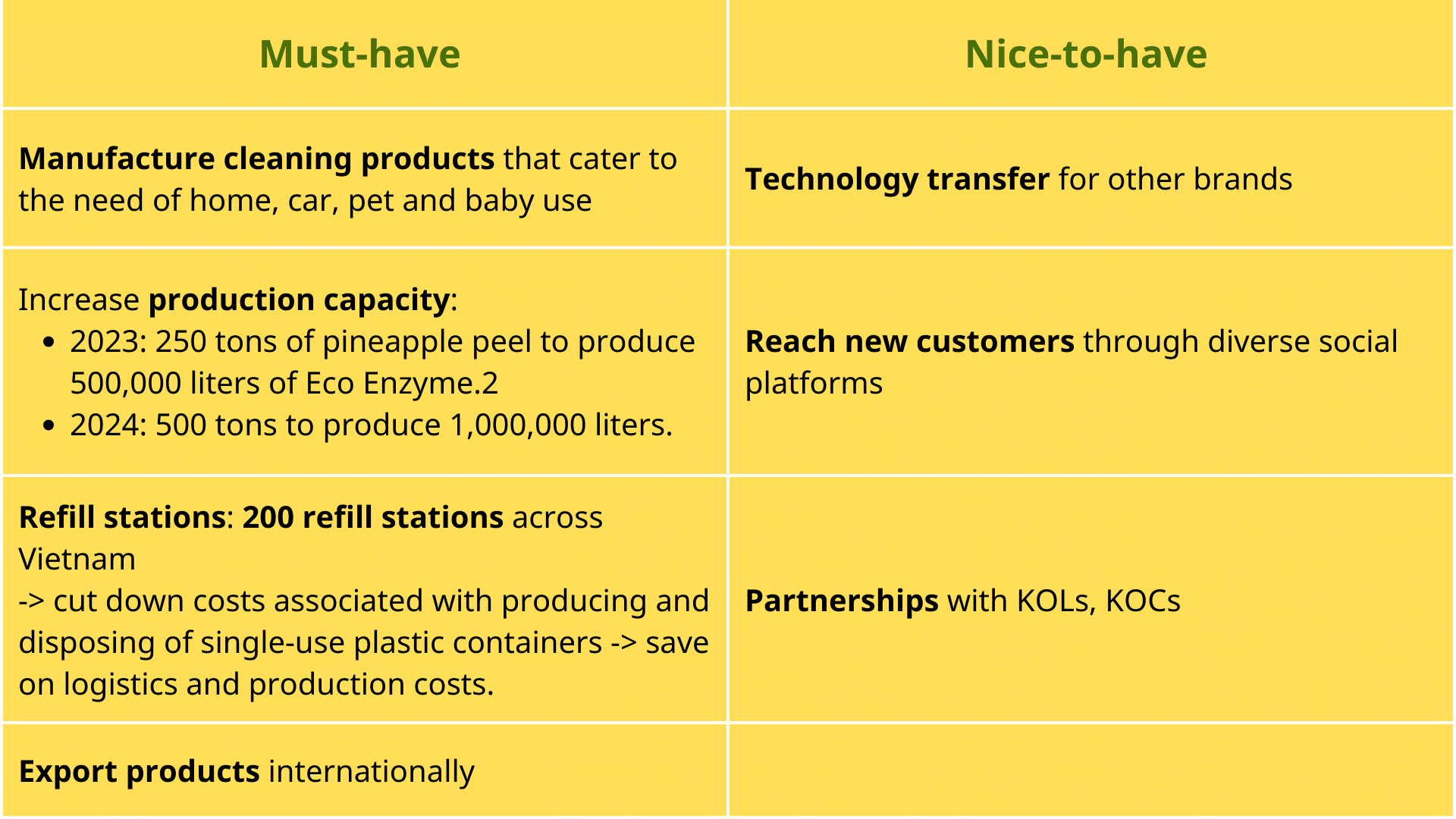
2. For social impacts, we conducted the following key activities:
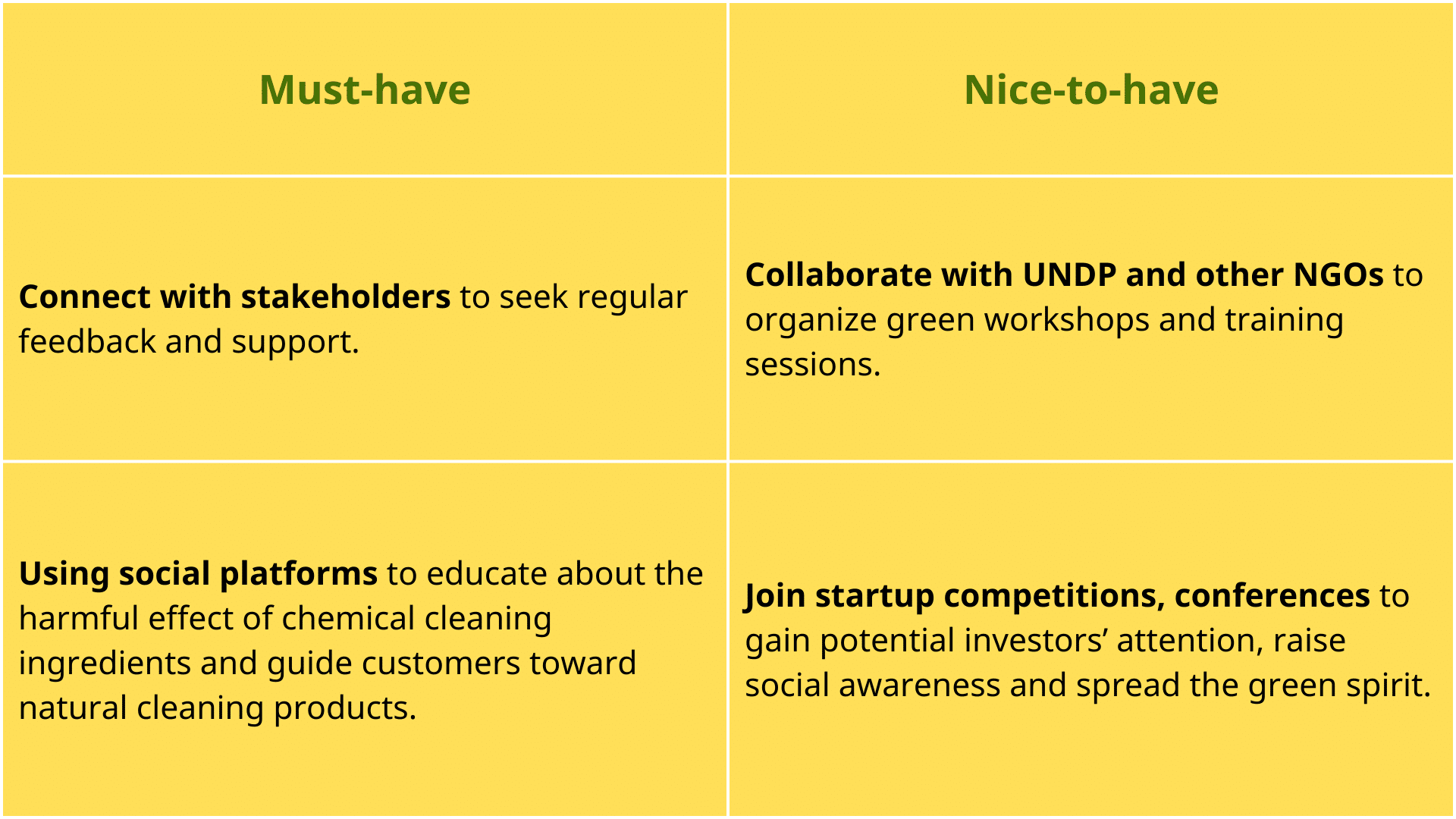
Key resources:
- Material resources
FUWA purchased fruit waste from local factories that make canned pineapple in Thanh Hoa province, which is one of the largest local pineapple fields in Vietnam. Pineapples are grown and cared for 18 months, reaching 35 – 40 tons/hectare. With a manufacturing factory to transform pineapple peels into Enzymatic cleaners, FUWA has been able to save 300 tons of pineapple trash annually. Currently, FUWA owns advanced production lines, shortening fermentation time from 3 months to 1 month and increasing Enzyme density to 5 times.
- Financial resources
In the initial stage, FUWA has strategically used owners’ equity to support its mission of creating eco-friendly cleaning products. Then, through community crowdfunding, securing sponsorships from green organizations, and obtaining funding from investors, FUWA has successfully got the financial backing needed. These valuable resources not only provide the necessary capital but also reinforce the trust in FUWA’s mission. The company’s strong product advantages and its commitment to social and environmental impact have been key factors in attracting and securing these funds. To date, FUWA has achieved significant milestones with this approach.
- Human resources
Research & Development:
PhD. Đặng Đức Long:
- Doctor of Philosophy in Biochemistry at the University of Massachusetts Lowell
- Implement various collaborative projects between the UK and Vietnamese partners, such as the UK-VN HEP project, Researchers Links, and the GCRF project.
Ms. Đỗ Thị Luyến: Biochemistry Engineer
Business Operations:
|
Mrs. Bùi Thị Bích Ngọc CEO Accounting – Auditing 15 years of experience |
|||
|
Mr. Đỗ Xuân Tiến COO |
Mrs. Bùi Thị Lan Hương
CDO |
Mr. Lê Duy Hoàng
CPO |
Mrs. Lương Thị Tuyền CFO |
- Community resources
Last but not least, we need a lot of support from the community to make FUWA successful. One of our biggest challenges is educating people to be more environmentally conscious and changing the way they use cleaning products. Therefore, this social resource is the most important resource and also the most difficult to acquire.
Key Partners:
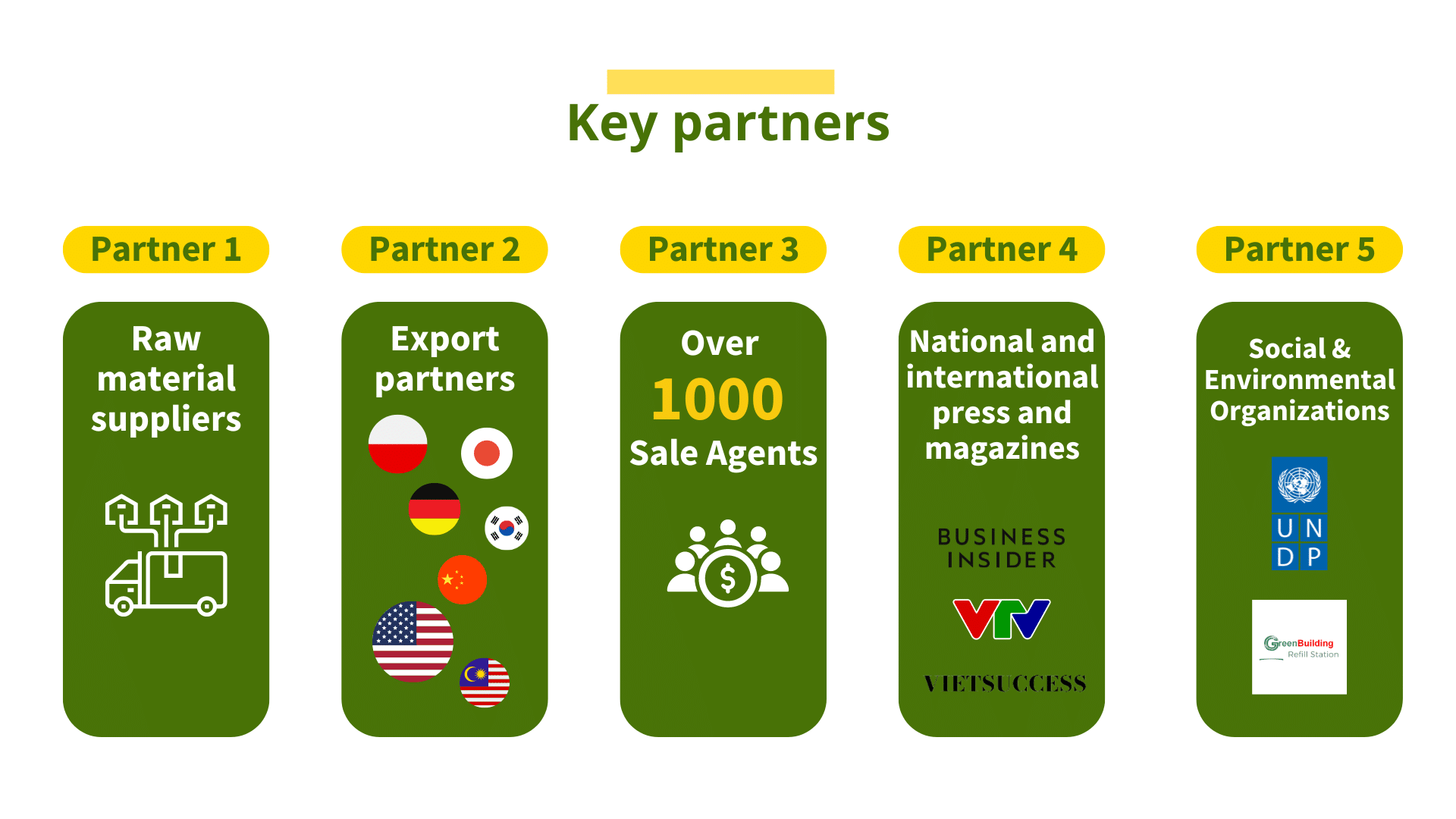
B5. Profitability
Cost Structure & Revenue Stream:
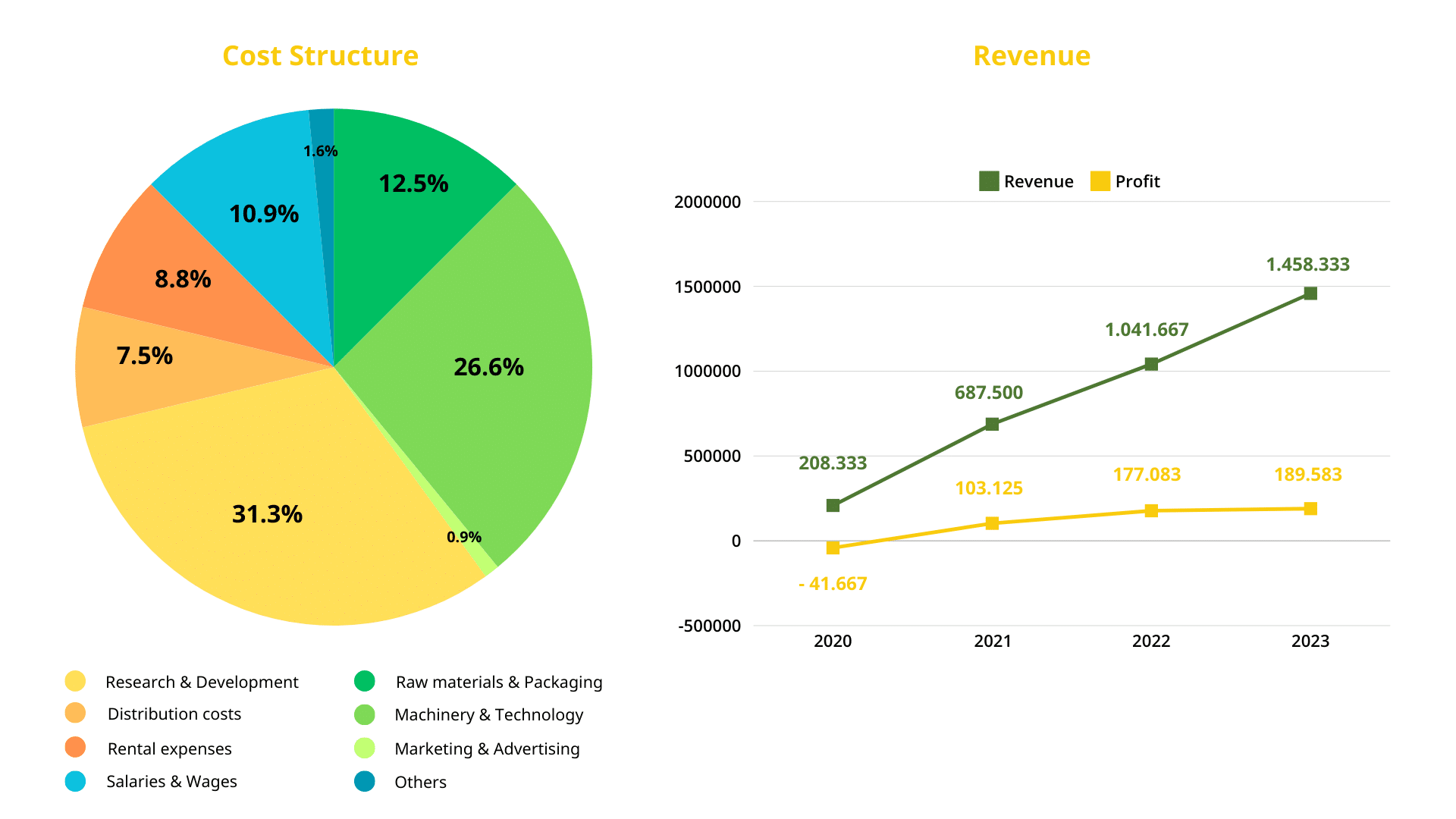
| Metric | Jan | Feb | Mar | Apr | May | Jun | Jul | Aug | Sep | Oct | Nov | Dec | Total |
| Bills | 12,000 | 11,500 | 11,800 | 4,500 | 4,200 | 5,000 | 5,200 | 5,100 | 10,500 | 11,800 | 5,000 | 4,900 | 91,500 |
| Revenue | $140,000 | $130,000 | $135,000 | $50,000 | $45,000 | $55,000 | $60,000 | $58,000 | $125,000 | $135,000 | $55,000 | $53,667 | $1,041,667 |
From the cost structure, we can see that:
Fixed costs (which include R&D expenses, machinery & technology) account for a large proportion of total costs. Fortunately, Vietnam – UK Institute for Research and Training, University of Danang (VNUK) who provided us laboratory space, equipment, and technical expertise to support our research and development stage.
Variable costs, which are:
- Raw material & Packaging costs: Material cost including pineapple peels, other essential oil, etc accounted for about 12.5%. We have a cheap source of raw materials, therefore the costs of raw materials and packaging do not take up a large proportion of the total expenses.
- Salaries & Wages: We use local labor, mostly farmers and ethnic minorities, so the wages paid to them are not excessively high.
- Distribution costs: including delivery costs, warehousing cost, handling costs, import/export duties, etc.
- We also have rental expenses (for our offices), marketing and advertising expenses (for sales), and other costs. These costs represent a relatively small proportion of the total expenses.
As a B2B company, most of our revenue comes from indirect channels, such as distributors, sales agents, supermarkets, and other partners. We cooperate with our distributors to display FUWA products on their shelves with a commission rate of 50%.
By 2030, FUWA targets 25 million USD revenue, broader market penetration, and new health product lines, supported by a new factory. By 2035, FUWA aims for 50 million USD revenue, market leadership in Vietnam, and advanced research through an Eco Enzyme LAB. These achievements and future plans highlight FUWA’s robust scalability.
Social Return on Investment:
To measure social impacts, we provide some categories based on the aforementioned beneficiaries. The following table is calculated based on our analysis of FUWA’s dishwashing liquid for the period of 6 month:

The SROI calculation of 0,63 suggests that for every 1.000 VND invested, there is an expected return of 630 VND in social benefits across these beneficiaries.
Economic return on investment:
From the revenue and costs given above, we have calculated the Economic Return on investment of 2023, which is approximately 15.26%. This means that for every 1.000 VND invested, FUWA generates a return of about 15.260 VND in profit.
Scalability Evidence:
Our history and Roadmap:
FUWA has demonstrated strong scalability with clear milestones and strategic growth plans. Starting in 2019, FUWA laid a solid foundation with semi-industrial production and a 4-star OCOP certification. By 2025, we aim for 5 million USD revenue, market expansion in Vietnam, and entry into the USA, EU, and Japan. Plans include new body care products and significant R&D investments.
Market Growth:
FUWA’s scalability is strongly supported by significant market growth trends in Vietnam.
- Population Growth: Vietnam’s population has been steadily increasing, reaching 100.3 million people in 2023, according to the General Statistics Office of Vietnam. This growing population translates to a larger consumer base, particularly for essential household products like cleaning solutions.
- Urban Customer Segment Expansion: Urbanization in Vietnam is rapidly increasing. By 2025, it is expected that at least 45% of Vietnam’s population will reside in urban areas. Urban consumers tend to have higher disposable incomes and are more health-conscious and environmentally aware, aligning perfectly with FUWA’s target demographic.
- The rise in demand for sustainable products: According to a survey by Rakuten Insight on sustainable consumption in 2023, around 84 percent of respondents in Vietnam would pay more for sustainable products.
B6. ESG Integration
At FUWA, we are deeply committed to integrating Environmental, Social, and Governance principles into every aspect of our operations. Our dedication to sustainability, community well-being, and ethical practices is reflected in our innovative approach to producing eco enzyme-based natural wash products. Here’s how we embody ESG principles:
Environmental Responsibility
Sustainable Sourcing:
- Raw Materials: We use pineapple peels, a waste product from one of the largest pineapple-growing regions in Thanh Hoa, Vietnam. We save 300 tons of pineapple trash annually and contribute to a circular economy.
- Eco Enzymes: Our eco enzymes make our products biodegradable and environmentally friendly.
- Green Supply Chain:
- Waste Reduction: Our production process uses pineapple peel as the input. After fermenting, the liquid is used to make our products and the residue is used as fertilizer for local farms.
- Low Carbon Footprint: We employ energy-efficient processes and prioritize local sourcing to reduce our carbon emissions throughout the supply chain.
Product Sustainability:
- Zero Harmful Chemicals: Our commitment to 0% colorants, 0% artificial fragrances, and 0% harmful chemicals ensures that our products are safe for both users and the environment.
- Eco-Friendly Packaging: We use recyclable and biodegradable packaging materials to minimize our environmental impact.
Social Responsibility
Community Engagement:
- Local Partnerships: By sourcing pineapple peels from local factories, we support the local economy and create additional income streams for communities in Thanh Hoa.
- Education and Awareness: We actively engage with our community to educate them about the benefits of eco-friendly products and sustainable lifestyles.
Health and Safety:
- Safe Products: Our products are designed to be gentle on all skin types, including sensitive skin and babies, reducing health concerns for users.
- Healing Properties: Eco Enzymes in our products can soothe wounds, burns, and inflammation.
Governance
Ethical Business Practices:
- Supportive Workforce: By ensuring that 90% of our workforce comprises women and ethnic minorities, FUWA promotes diversity and inclusivity.
- Transparency: We maintain transparency in our sourcing, production processes, and product ingredients on all social platforms, ensuring that our customers are fully informed about what they are buying.
Continuous Improvement:
- Innovation: We continuously invest in research and development to improve our products and processes, ensuring that we remain at the forefront of sustainability and efficiency.
- Stakeholder Engagement: We regularly seek feedback from our stakeholders, including customers, employees, and community members, to ensure that we are meeting their needs and expectations.
C. BUSINESS MODEL VALIDATION
Our trade activities
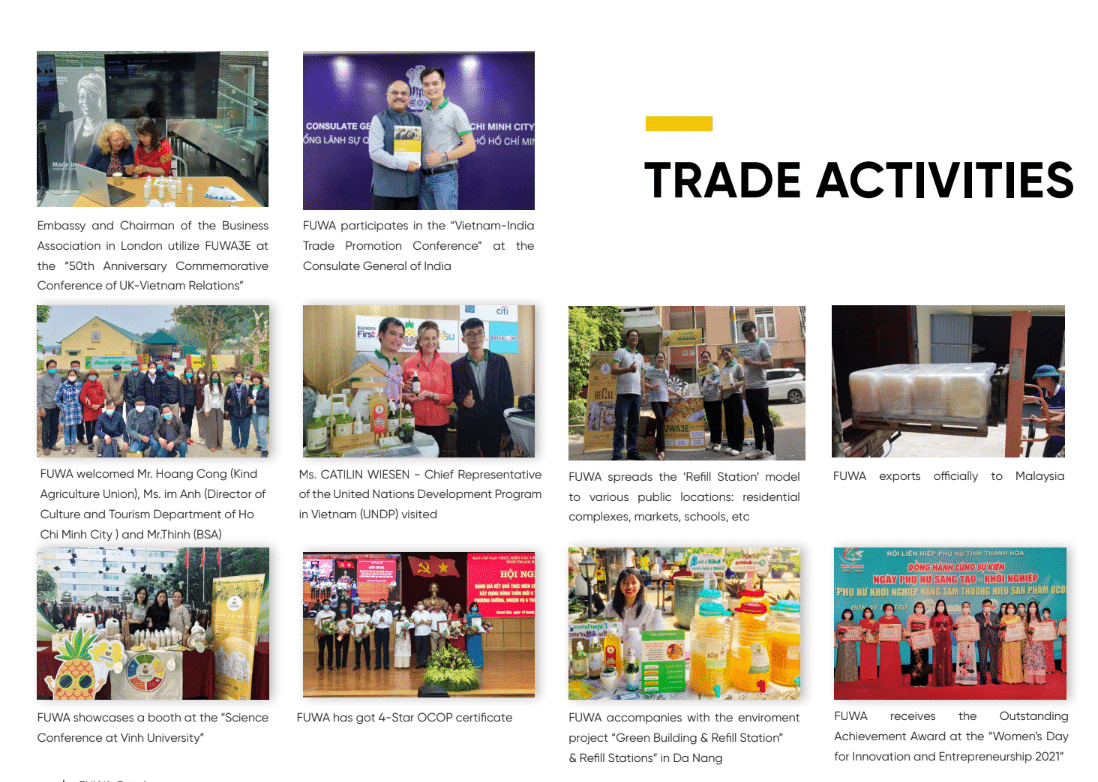
C1. Crowdfunding/Crowdsourcing
Crowdsourcing:

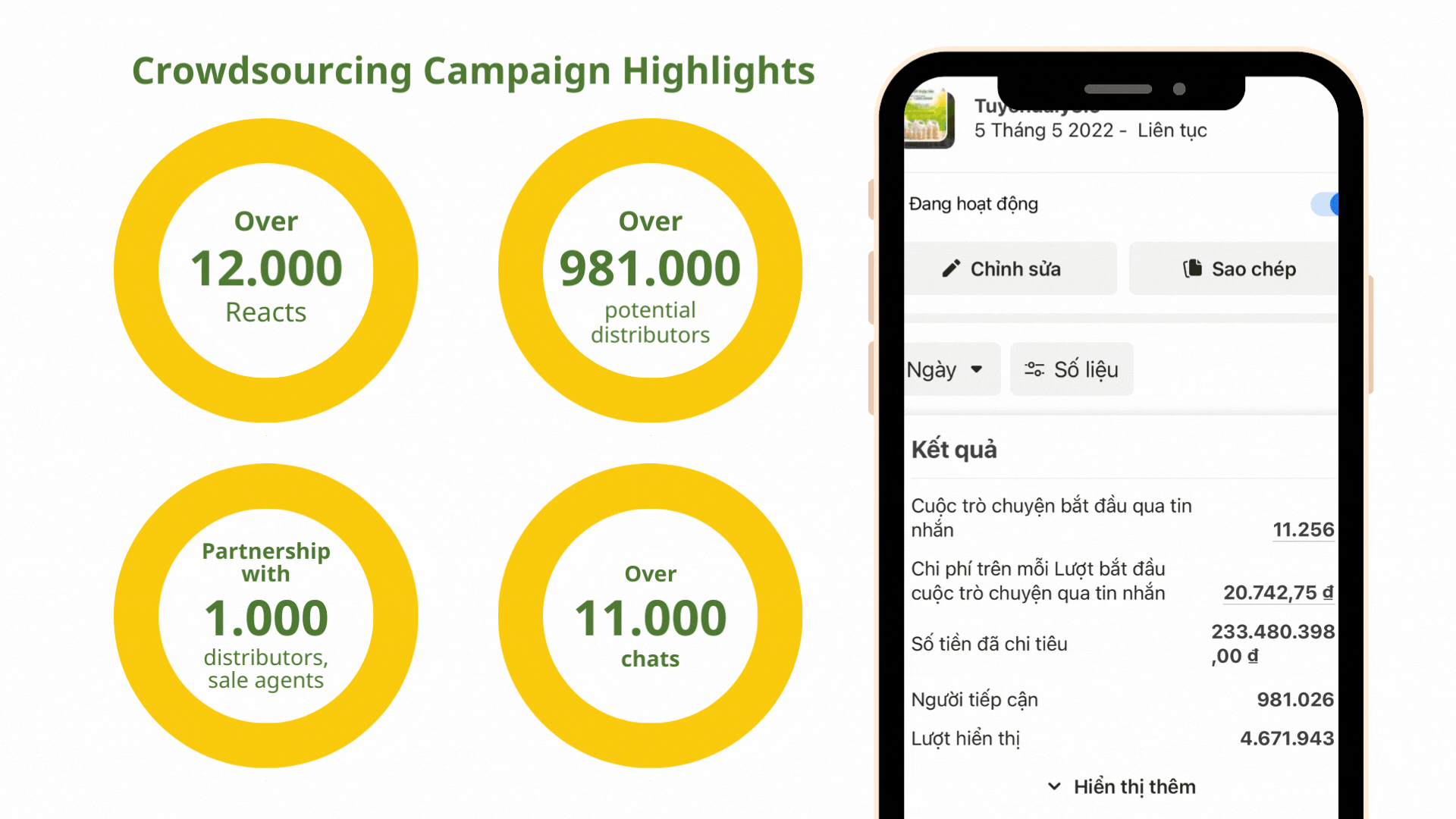
Crowdfunding:
We proposed 2 strategies as followed:

As part of our second strategy, we secured funding from community supporters within our social network. We provided various benefits to our backers based on the amount they contributed.
The details of our campaign can be found here.
The ask and the campaign’s results:
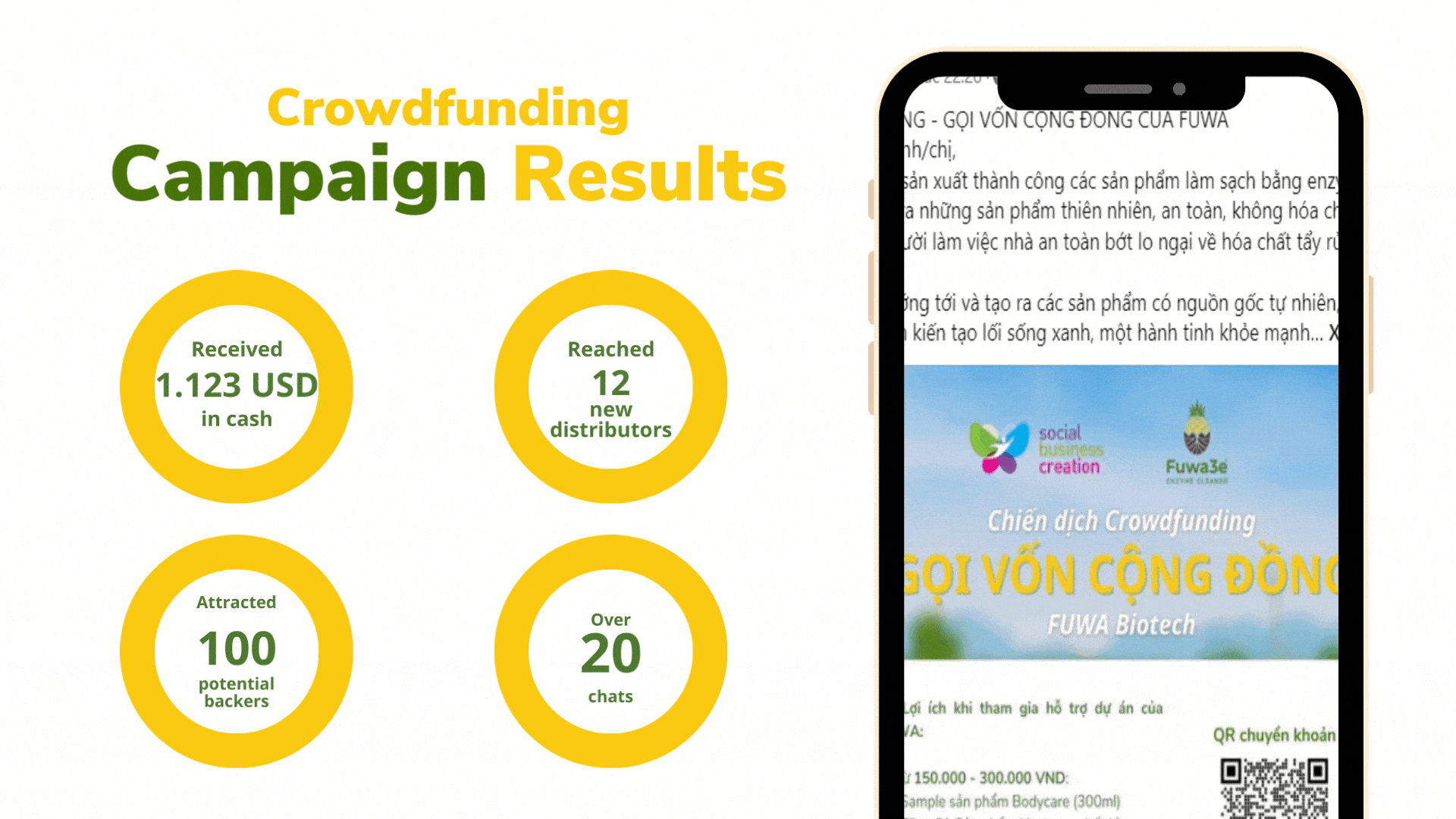
The ask:


The campaign’s results:

| Backers | Who are they | What we received | |
| Long-term backers | Local Government | People’s Committee of Thanh Hoa City | They provide funding and grants for our projects and research initiatives. |
| Universities/ Schools | Vietnam – UK Institute for Research and Training, University of Danang (VNUK) | They provide laboratory space, equipment, and technical expertise to support our research and development stage | |
| Foreign Trade University | They invited us to be their guest speakers in several workshops and talk shows. They also promote our brand through official websites and fanpages. | ||
| Vietnam – Cuba Primary School | They promote our brand via Facebook page. | ||
| Suppliers | Canned pineapple manufacturer in Thanh Hoa province | They supplied us 30 tons of pineapple peels annually with reasonable prices | |
| Sale agents, Supermarkets, Distributors | AEON Malls, Naman Market, Green Nature, etc | They stock and prominently display our products. We also received promotional support from them. | |
| Short-term and strategic backers | Business partner | Hanhsilk | In exchange for our development of exclusive detergents for silk, they support us to reach the target market by providing us target customer profiles. Our products are also presented at their workshops and events. |
| NGOs | Green Building Vietnam, Nơ Xanh, Shrek Sành Xanh | They promote our products via social media. | |
| Media partner | Business Insider, UNDP Youth Collab, VTV, VTC, etc. | They published articles and videos about our brand, supporting us to not only reach our international customers but also share our social value. | |
| Sao Than Nong – a TV program produced by VTV aiming to help farmers across Vietnam | They funded us 5 million VND and our products are featured on VTV1’s Good Morning Vietnam | ||
| Trade and Start-up Fairs, Competitions, etc. | UNDP: Youth Collab (1st Runner Up) | We received a total grant of $1000 for arriving at the First Runner-up position. Thus, we are granted the opportunity to represent Vietnam at The Youth Collab Summit 2021 in Malaysia. | |
| TechFest 2020 (Top 20), Blue Venture Awards (Top 10 Community Entrepreneurs) | We gained access to mentorship from experienced professionals who provided insights and guidance on scaling our business and improving our products. | ||
C2. LEARNING CURVE:
Key lesson learnt: Empathy Map Canvas learnt from SBC’s course – Principles of Business Model Innovation allowed us to gain a deeper understanding of our consumers, thus transforming detailed observations into strategic insights, guiding decision-making processes.
By developing a holistic view of the customers’ experiences, FUWA has been continuously designing and upgrading products to truly meet their specific needs and preferences. By applying Empathy Map Canvas, we realized the importance of diversifying our products to meet customers’ evolving requirements. Thus, we have built a thorough plan to develop a new product line for Cosmetics including Shampoo & Shower Gel and so on.
Not only customers but also stakeholders are those we need to understand their needs & perspectives, thereby enhancing the ESG performance, creating positive impact for each of them.
In short, the SBC Course has helped us to realize one most important thing: Empathy is an ongoing process which requires genuine effort & care. To effectively evolve and expand our business, we should focus on our target audience instead of only customers. The key is to design & develop products that most fit our target audience.




